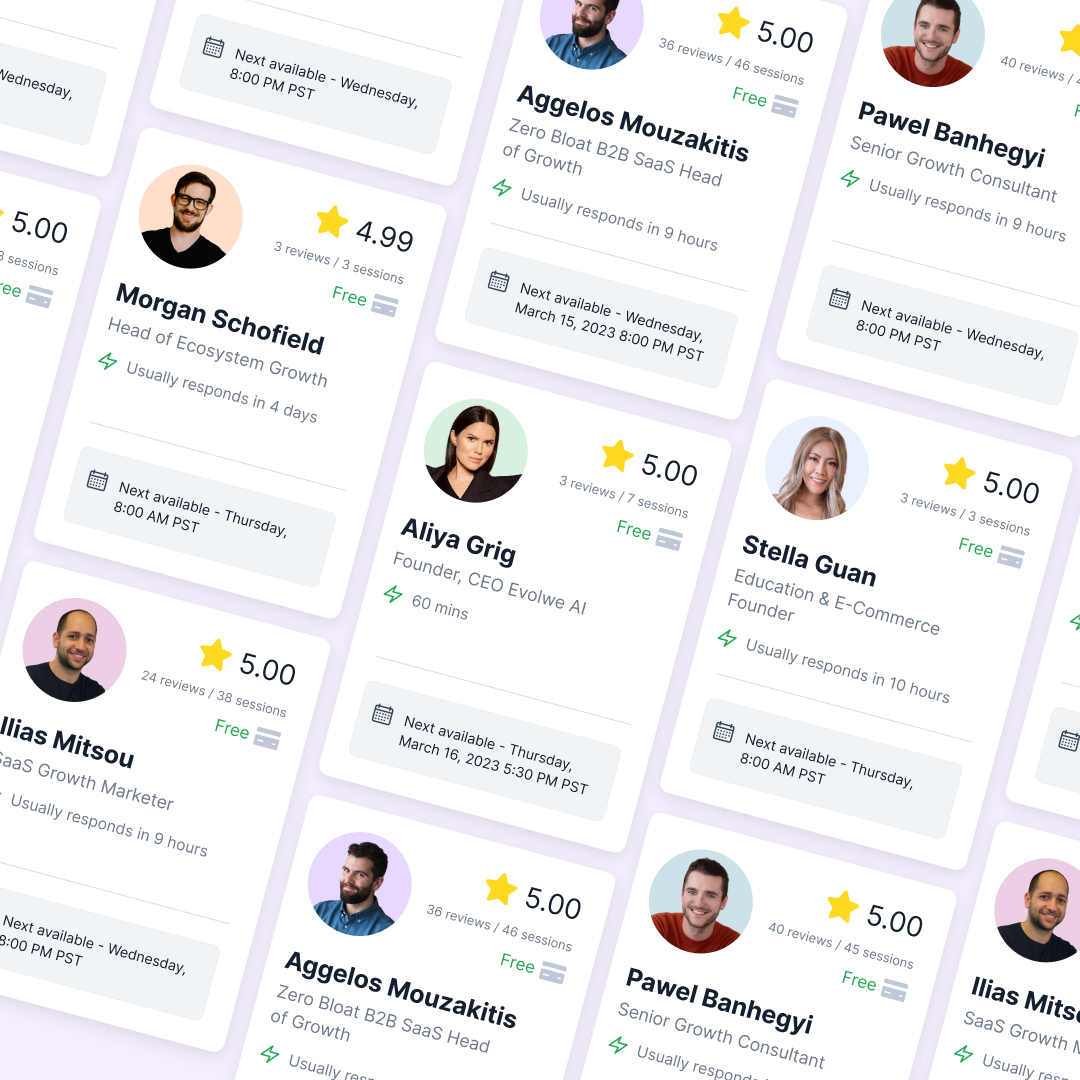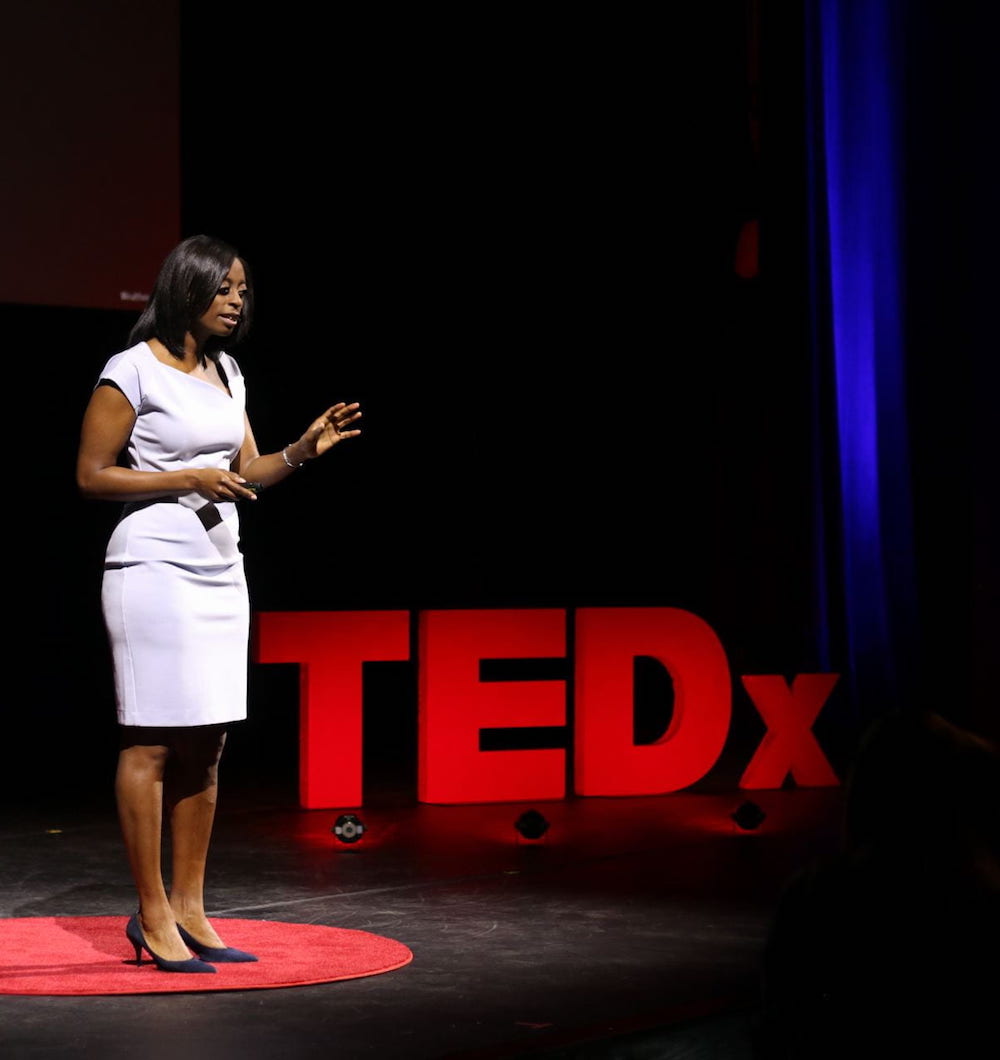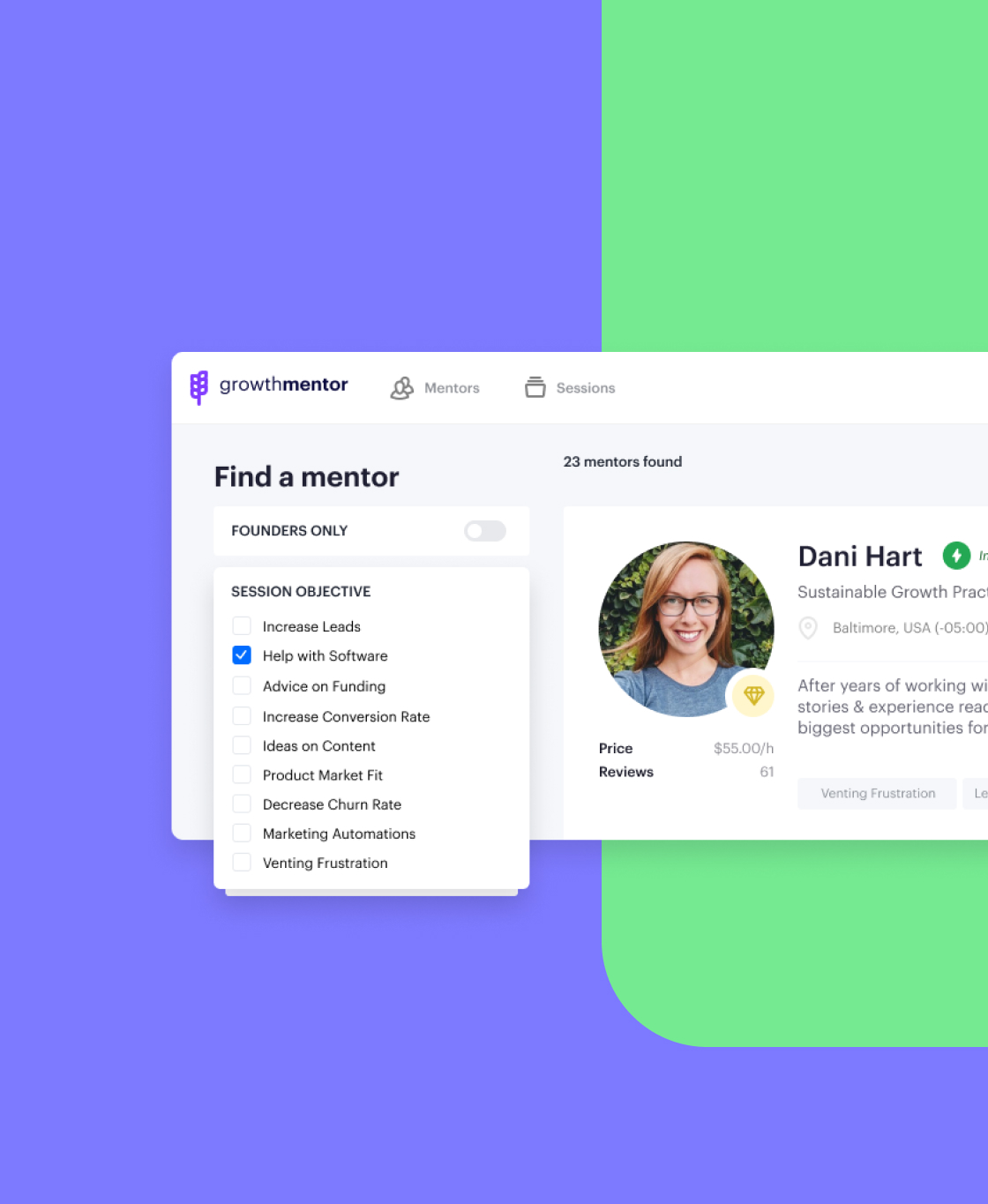The Founder’s Guide to Learning From People Who’ve Never Been Founders
Flora Bui was stuck. After two years of bootstrapping her AI-powered skincare tech startup with a team of 12 engineers and scientists, she found herself at a critical juncture. The technology was solid – two U.S. patents solid. The vision was clear: become the “Apple for Skincare.”
But something wasn’t clicking.
Like many founders, Flora’s first instinct was to seek advice from other startup founders. After all, who else could understand the unique challenges of building a hardware startup in the beauty tech space? But then something unexpected happened.
Through GrowthMentor, Flora connected with Jitesh Arora – not a founder, but a mentor with deep expertise in fundraising and go-to-market strategy.

Flora Bui - Cofounder at Acie.skin“My favorite thing about GrowthMentor is how it allows me to expand my network globally in a very short time and at a very reasonable cost.”
Initially skeptical about taking advice from someone who hadn’t built a hardware startup, Flora decided to give it a shot.
“I transformed my pitch deck and adopted new approaches to fundraising,” Flora recalls. The breakthrough came not from someone who’d built a similar company, but from someone who understood the fundamental principles of what makes businesses succeed.
In those first couple of weeks, Flora met experts from diverse backgrounds spanning the US, UK, Israel, India, and Japan. Each brought a unique perspective that challenged her assumptions about her business. The most valuable insights often came from people who’d never sat in a founder’s chair – specialists who saw opportunities she’d been too close to notice.
This isn’t just Flora’s story.
At GrowthMentor, we’ve seen this pattern repeat countless times: founders who break free from the “founders-only” mindset often experience the most dramatic breakthroughs.
The Hidden Cost of Founder-Only Thinking
Flora’s initial hesitation to seek non-founder advice isn’t uncommon – it’s actually the default for most founders. But this instinct, while natural, comes with hidden costs that can silently derail your startup’s growth.
In analyzing thousands of mentorship sessions on GrowthMentor, we’ve seen that over 83% of breakthrough insights come from mentors who bring specialized expertise rather than founder experience.
Yet many founders still limit themselves to founder-only advice.
“I spent too long trying to learn everything on my own,” admits Joshua Blount, founder of Techeters.
Like many founders, Joshua initially believed that only other founders could provide valuable guidance. But this mindset overlooks a crucial truth: specific expertise often trumps shared experience.
Think about it – would you rather get marketing advice from a founder who’s dabbled in everything, or from someone who’s spent a decade mastering the exact channel you’re struggling with?
The answer might seem obvious, yet founders often default to the former, simply because they share the founder experience.
Marin Bargan of Dezign41 discovered this the hard way.
“Before joining the mentor sessions on GrowthMentor, things were rather vague,” he shares. “It was difficult to immediately identify the areas I needed to improve.”
By limiting himself to founder advice, Marin was missing out on cross-pollination of ideas from other industries – innovations that could give his startup a unique edge.

Irina Alexandra - Founder of BrightRoom.de“As a solo founder, not part of any incubator or accelerator, I’m constantly faced with a range of problems without easy pathways to solutions. With GrowthMentor I feel there’s a global, best in class support team I can turn to.”
Some of the most disruptive innovations come from applying solutions from one industry to problems in another. As Irina Alexandra, founder of Brightroom, puts it: “You can rarely ‘connect the dots’ looking forward.”
The expertise you need most might come from someone who’s never founded a company but has spent years mastering the specific challenge you’re facing today.
The question isn’t whether founder advice is valuable – it absolutely is. The question is whether it’s sufficient.
And as we’ll see in the next section through John Wood’s case study, the answer often lies in finding the right balance between founder wisdom and specialized expertise.
From Resistance to Results: John Wood’s Case Study
When John Wood first launched Rageheart, he fell into a common founder trap: buying endless startup courses and seeking advice exclusively from other founders. “Like many entrepreneurs, I’m a bit addicted to buying courses,” he admits. “I’ll hold off on buying clothes, but I often don’t think twice about purchasing courses.”
But courses and founder advice weren’t solving his core challenge: explaining Rageheart’s unique value proposition. His product generated fantastic testimonials, often unsolicited, but marketing it effectively remained elusive. “It’s like meditation but better,” he’d explain, but the message wasn’t landing.
The Turning Point
The breakthrough came when John decided to step outside the founder echo chamber. “I can talk to people I’d never otherwise get to talk to,” he reflects. “I just enjoy getting on the phone and watching them as they look at Rageheart, listening to them think out loud.”
What happened next would transform his approach to building Rageheart.

John Wood - Founder of Rageheart.co“A GrowthMentor call is like having a shot of coffee. It injects more excitement and passion into my day. That excitement injects itself into my work, making me more productive, focused, and driven. That’s my favorite benefit of GrowthMentor.”
Types of non-founder mentors he spoke to
Product Managers
John’s first revelation came from product managers who approached Rageheart with fresh eyes. “They often tell me what they’d do if they were in my shoes,” he shares. This outside perspective led to crucial insights:
- Identification of implicit product benefits founders take for granted
- Clear articulation of value proposition from a user’s perspective
- Specific UI/UX improvements that founders might overlook
“Sometimes we’re too close to our product to see its true value. A fresh pair of eyes – especially expert eyes – can spot opportunities we’ve been staring past for months.” -John Wood
Sales Professionals
The next breakthrough came from sales professionals who helped John translate his product’s benefits into compelling sales messages.
Key learnings included:
- Reframing technical features into customer benefits
- Developing a clearer elevator pitch
- Creating a more effective sales page
“I’ve walked away from all the calls excited,” John notes. “That excitement injects itself into my work, making me more productive, focused, and driven.”
Chief Operating Officers
The final piece came from operations experts who helped John build systems to scale his initial success:
- Creating repeatable processes for user onboarding
- Developing efficient feedback loops
- Building scalable support systems
“I’ve upped my YouTube game after speaking with someone on Growth Mentor,” John shares. “I’ve also changed one of our sales pages. Most importantly, I’ve walked away from all of the calls excited.”
Take action now
Choose Your Domain
Start with one area where you need specialized expertise right now. It could be product development, marketing, sales, or operations. Remember: you’re not looking for general startup advice – you’re seeking deep domain expertise.
The first step is identifying the expertise you need.
Below is a table to help inspire you.
| Problem Type | Expertise Needed | Example Expert |
| Product Challenges | Product Management/UX | Senior Product Manager |
| Marketing Struggles | Channel Expertise | Performance Marketing Director |
| Operations Issues | Systems Design | Chief Operating Officer |
| Sales Challenges | Sales Process | Enterprise Sales Leader |
Find Your Expert
Look for someone who has spent years mastering the specific challenge you’re facing. They might never have founded a company, but their specialized knowledge could be exactly what you need to break through.
Come Prepared
Before your first conversation with a non-founder expert:
- Clearly define your challenge
- List your assumptions
- Prepare specific questions
- Be ready to have those assumptions challenged
The path to extraordinary growth rarely runs through familiar territory.
Are you ready to listen to someone who’s never been in your shoes, but might just help you take your next big step forward?
Nobody's an expert at everything




